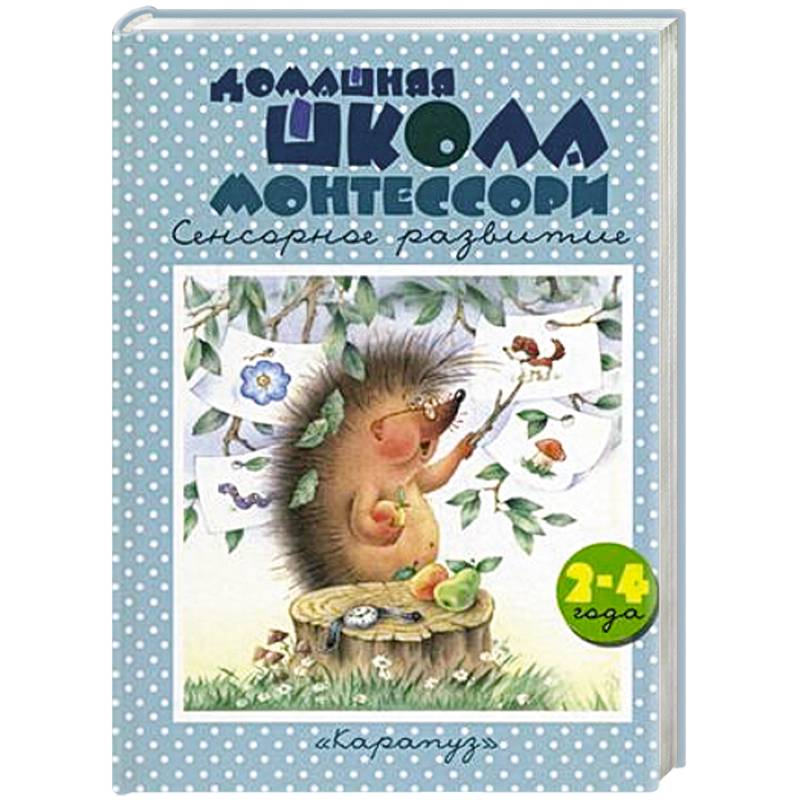Montessori Home School
Please sign in so that we can notify you about a reply
In this book, we will tell you about how and with the help of what exercises a child with touch versions are introduced, learn to read and write according to the method of the Italian teacher Maria Montessori. Of course, these exercises will not be able to replace the serious work of the baby in a special educational environment with a montessori teacher, and only will open the world of this particular pedagogical system for you.
When a child comes in a montessori group for the first time, he falls into the area of practical life, where he studies simple actions (pour, overflow, sweep, wipe the sponge, etc), developing the independence of the baby and his self-esteem. In the first part of our book, you will get acquainted with the exercises from practical life.
The second part of the book will help you organize at home enrichment of the sensory experience of your baby. Montessori has given great importance to upbringing feelings (vision, hearing, smell, taste) and the development of small motility. It is known that children who, at an early age, have learned well to perform small movements with their hands, are significantly ahead of peers in mental development.
And finally, in the last part of the book you will find a lot of useful letters and reading for child learning.
Our book will be a companion of your baby for several years. Each of her turn is a series of classes with a child. Therefore, you do not hurry to read the book all right away and put it on the shelf. If the child makes a desire to repeat the exercise on his own, he also perceived and learned what you taught him, and wants to move on.
Montessori technique classes require active parental participation: you need to prepare benefits (material) to lessons, learn how to clearly and briefly tell how to work with this material (this is called the presentation) And, most importantly, learn to hear your child and respect his aspirations. But this is grateful and noble work
When a child comes in a montessori group for the first time, he falls into the area of practical life, where he studies simple actions (pour, overflow, sweep, wipe the sponge, etc), developing the independence of the baby and his self-esteem. In the first part of our book, you will get acquainted with the exercises from practical life.
The second part of the book will help you organize at home enrichment of the sensory experience of your baby. Montessori has given great importance to upbringing feelings (vision, hearing, smell, taste) and the development of small motility. It is known that children who, at an early age, have learned well to perform small movements with their hands, are significantly ahead of peers in mental development.
And finally, in the last part of the book you will find a lot of useful letters and reading for child learning.
Our book will be a companion of your baby for several years. Each of her turn is a series of classes with a child. Therefore, you do not hurry to read the book all right away and put it on the shelf. If the child makes a desire to repeat the exercise on his own, he also perceived and learned what you taught him, and wants to move on.
Montessori technique classes require active parental participation: you need to prepare benefits (material) to lessons, learn how to clearly and briefly tell how to work with this material (this is called the presentation) And, most importantly, learn to hear your child and respect his aspirations. But this is grateful and noble work
Cover:
Cover:Hard
Category:
- Category:Education & Teaching
- Category:Languages
Paper:
Paper:Molded
Series:
Series: 2
ISBN:
ISBN:978-5-8403-1420-3
No reviews found
